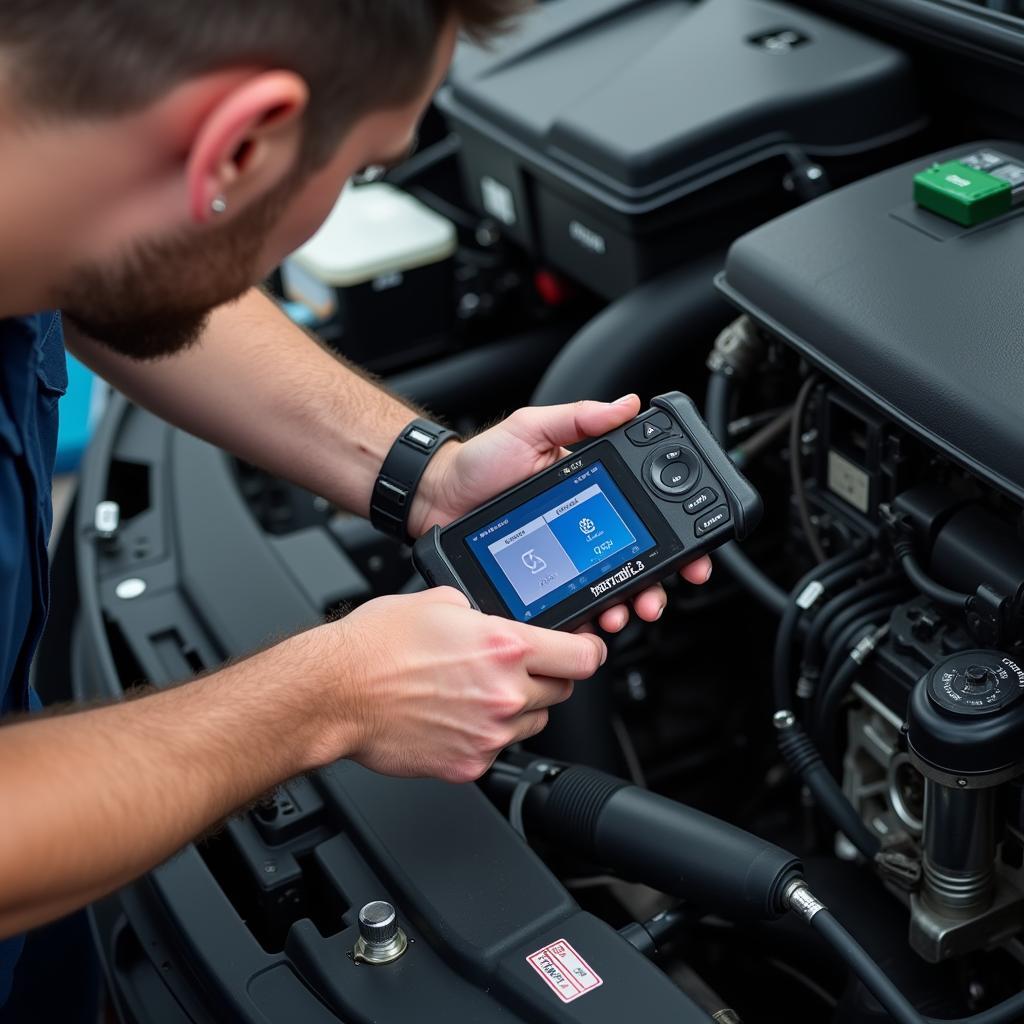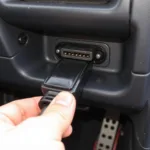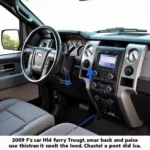The ELM327 interface is a popular and affordable tool that allows you to connect your car’s OBD2 port to your smartphone, tablet, or laptop. This connection enables you to access and interpret your vehicle’s diagnostic data, giving you insights into its performance and potential issues. But does the ELM327 interface support all OBD2 protocols, and how does that impact its compatibility with different car models?
Let’s delve into the world of OBD2 protocols and the capabilities of the ELM327 interface.
Understanding OBD2 Protocols: The Language of Car Diagnostics
OBD2, which stands for On-Board Diagnostics, is a standardized system that allows external devices to communicate with a vehicle’s computer. This system utilizes various communication protocols – essentially languages – to exchange information between the car’s systems and the diagnostic tool.
Think of it this way: if the OBD2 port is the “mouth” of your car’s computer, then the protocols are the different “languages” it can speak. Just like not everyone speaks the same language, not all vehicles use the same OBD2 protocol.
Some of the most common OBD2 protocols include:
- SAE J1850 PWM: Primarily used in older Ford vehicles.
- SAE J1850 VPW: Found in many General Motors models.
- ISO 9141-2: Commonly used in European and Asian vehicles.
- ISO 14230-4 KWP2000: Another protocol prevalent in European and Asian cars.
- ISO 15765-4 CAN: The most recent standard, increasingly adopted in modern vehicles.
Each protocol defines the specific way data is formatted, transmitted, and received between the car’s computer and the diagnostic tool.
ELM327 and OBD2 Protocols: Bridging the Communication Gap
The ELM327 interface is designed to be a versatile translator between your car’s OBD2 port and your diagnostic software. It acts as an intermediary, interpreting the various OBD2 protocols and presenting the data in a way that your smartphone app or computer program can understand.
However, while the ELM327 is compatible with most common OBD2 protocols, it’s important to note that not all ELM327 devices support every single protocol. Some lower-cost or counterfeit ELM327 adapters might have limited protocol support, potentially leading to compatibility issues with certain car models.
Ensuring Compatibility: Factors to Consider
Before purchasing an ELM327 interface, it’s crucial to consider the following factors to ensure seamless compatibility with your vehicle and desired diagnostic software:
- Vehicle Model Year: Cars manufactured before 1996 in the US (or before 2001 in Europe) might not be OBD2 compliant at all. For vehicles made after these years, researching the specific protocols used by your car’s make and model is essential.
- ELM327 Version: Different versions of the ELM327 chip offer varying levels of protocol support. For instance, ELM327 v1.5 is known to have broader compatibility compared to older versions.
- Software Compatibility: The diagnostic software you intend to use with the ELM327 interface should also support the protocols used by your car.
“Always verify the protocol compatibility of your car, ELM327 adapter, and diagnostic software to ensure a smooth and successful diagnostic experience,” advises John Miller, a veteran automotive engineer.
Beyond Basic Compatibility: Expanding the Diagnostic Horizon
While the ELM327 interface with comprehensive protocol support provides a solid foundation for accessing your car’s diagnostic data, there’s more to consider for enthusiasts and professionals seeking advanced functionalities.
 Advanced OBD2 Diagnostics
Advanced OBD2 Diagnostics
Factors like data refresh rate, the ability to handle manufacturer-specific protocols, and support for advanced diagnostic commands can significantly impact the depth and detail of information you can extract.
For those looking to explore the full potential of OBD2 diagnostics:
- 0-60 OBD2: Discover how to accurately measure your vehicle’s acceleration using OBD2 data.
- OBD2 Car Speed in Meter Accuracy: Delve into the intricacies of OBD2 speed readings and their accuracy.
- Rent OBD2 Scanner Near Me: Explore options for accessing professional-grade OBD2 scanners for specialized diagnostic needs.
Conclusion: Making Informed Choices for OBD2 Diagnostics
The ELM327 interface, with its ability to support a wide range of OBD2 protocols, serves as a valuable tool for car owners and enthusiasts. By understanding the nuances of OBD2 protocols and considering factors like vehicle compatibility and software support, you can make informed choices to unlock the diagnostic power hidden within your car’s OBD2 port.
Need help finding the right OBD2 solution for your needs?
Contact us via WhatsApp at +1(641)206-8880 or email us at [email protected]. Our team of experts is available 24/7 to assist you.

